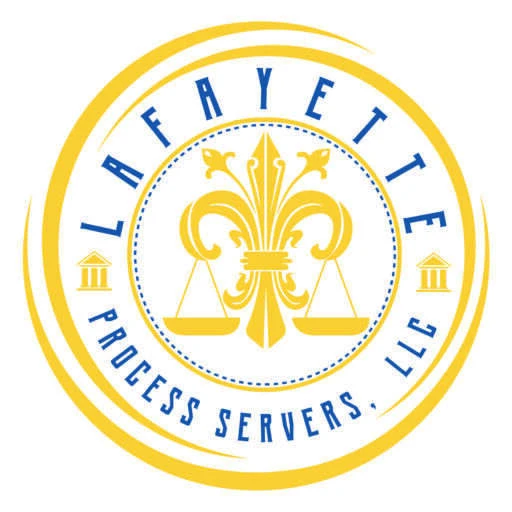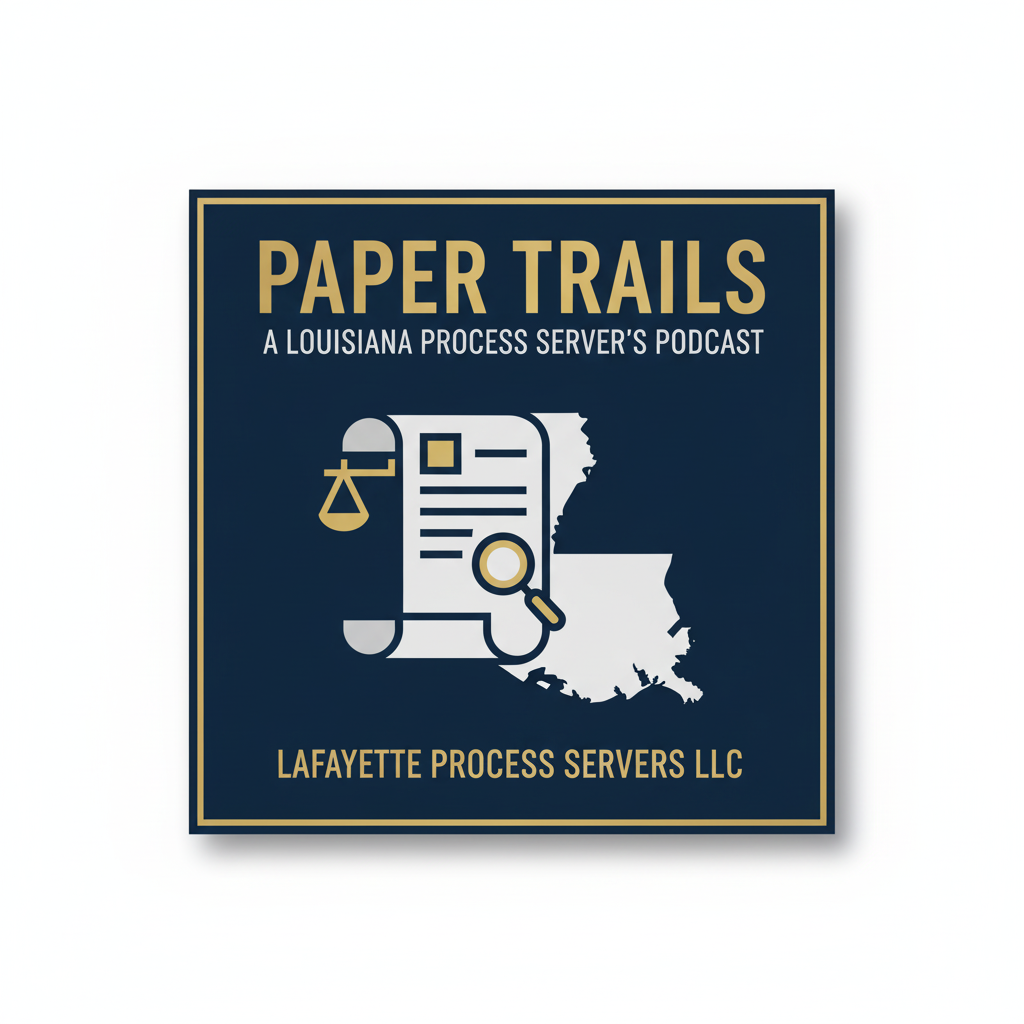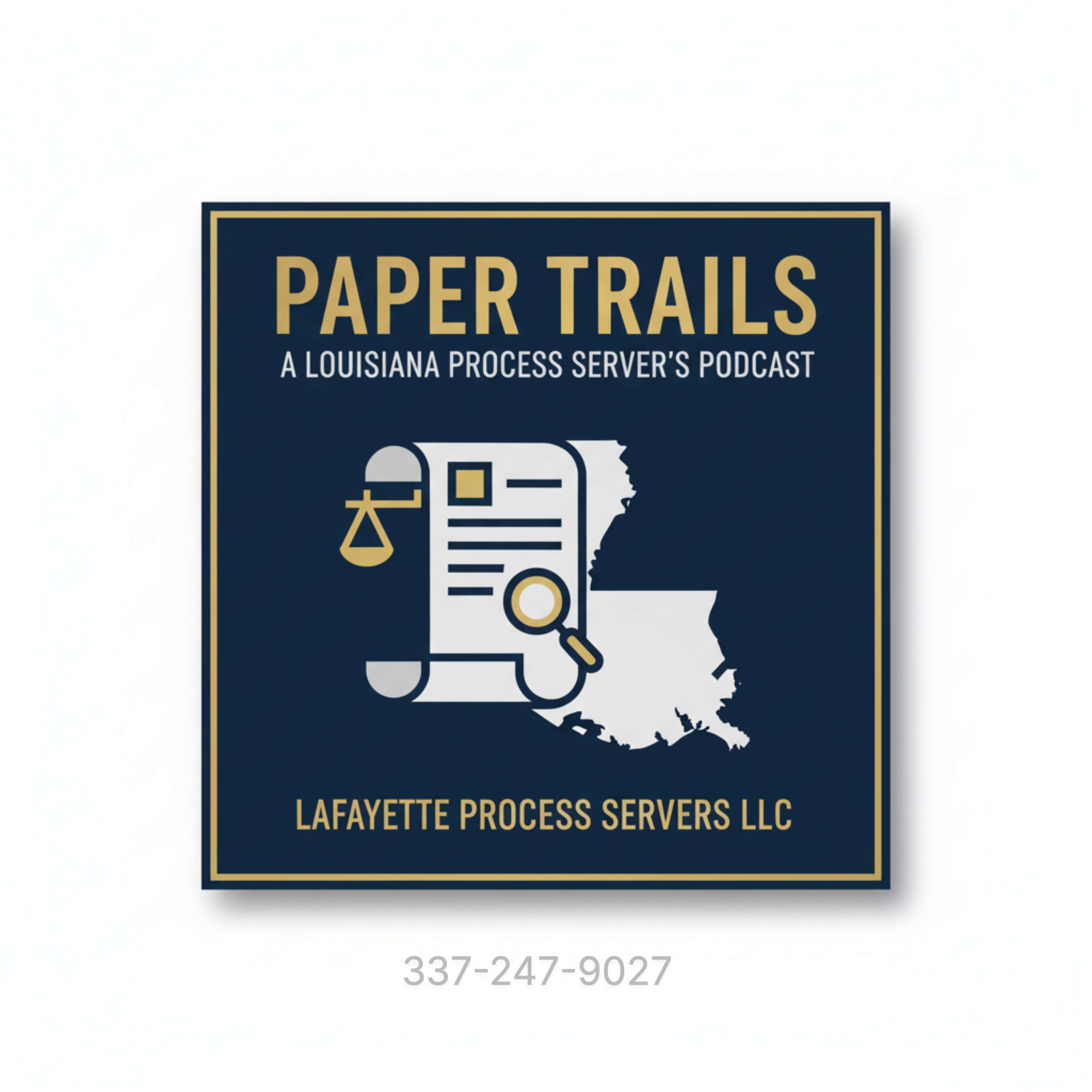Episode Transcript
[00:00:00] Speaker A: We've all imagined it, right? That knock on the door and there's a person holding a thick envelope. A court summons. Yeah. Your stomach just drops. And I think for a lot of us, if we're being totally honest, the first instinct is just to not answer or to take the papers and just, you know, shove them in a drawer and pretend it never happened.
[00:00:17] Speaker B: And that instinct, it's so human. But it is one of the single most dangerous financial mistakes a person can make.
[00:00:23] Speaker A: Right.
[00:00:24] Speaker B: We're here today because that corporate poor idea that if you ignore a summons, it just goes away, that is a complete myth, a catastrophic one.
[00:00:31] Speaker A: Especially in a place like Louisiana, with its specific laws.
[00:00:34] Speaker B: Exactly. Refusing to accept those papers doesn't pause the lawsuit. It just guarantees you lose.
[00:00:40] Speaker A: Yeah.
[00:00:40] Speaker B: You're giving up your right to fight before the match even starts.
[00:00:43] Speaker A: That really sets the stage for us. So our mission today, for you listening, is to give you a really clear, high impact look at what happens next. This is about more than just losing. It's about how the entire legal system is built to just move on without you. We're going to unpack the big legal hammers in Louisiana. The default judgment, the collection tools that get triggered when someone tries to dodge service.
[00:01:07] Speaker B: We're basically pulling back the curtain. Avoiding the problem doesn't just give the other side a win. It gives them the power of the state to come after your money, your car, your home.
[00:01:17] Speaker A: Okay, let's jump right in. A summons is issued. The defendant doesn't answer by the deadline. What is the very first, most immediate legal consequence? What's that hammer called?
[00:01:28] Speaker B: That hammer is the default judgment. It's all laid out in the Louisiana Code of Civil procedure, mainly Article 1701.
And it's the procedural knockout punch that most people just don't see coming.
[00:01:40] Speaker A: So walk us through how that works. It's not like you miss the deadline and poof, it's over. Right. That there's a process.
[00:01:45] Speaker B: That's right. It's a very structured process. The core idea is simple. Since you didn't show up to challenge the claims, the court just assumes the claims are true. Okay, but in Louisiana, it's a two step dance. First, the court enters what's called a preliminary default.
[00:01:58] Speaker A: Like a warning shot.
[00:01:59] Speaker B: Exactly. It's the court officially noting that your deadline to file an answer has passed and you've done nothing.
[00:02:05] Speaker A: And that deadline can be pretty short. Right?
[00:02:07] Speaker B: It can be sometimes just a couple of weeks, depending on how you were served.
[00:02:12] Speaker A: So that's step one, the preliminary default. What's the second, more permanent step.
[00:02:15] Speaker B: The second step is the confirmation of default. So if a couple more days pass after that preliminary default and you still haven't shown up, the plaintiff goes back to the judge. They present all their evidence, their proof, their damages. And since there's no one there to argue against it, the judge looks it over, confirms the default, and then awards the plaintiff everything they asked for.
[00:02:38] Speaker A: Everything. So you don't just lose, you lose completely. You lose the ability to argue the amount, to negotiate, to tell your side of the story. You could be on the hook for thousands of dollars without ever setting foot in a courtroom.
[00:02:50] Speaker B: Precisely. The time to fight was before that judgment. Once it's confirmed, the conversation is over, the whole legal dynamic just flips.
[00:02:58] Speaker A: Let's talk about that flip. The plaintiff now becomes a judgment creditor.
What new powers does that title actually give them?
[00:03:06] Speaker B: Well, this is where it gets really serious. For the person who ignored the summons before, the plaintiff was just a person or company you owed money to. They could call you, send letters.
[00:03:15] Speaker A: Annoying, but manageable.
[00:03:16] Speaker B: Right. But as a judgment creditor, they now have the state's enforcement power behind them. It's not a dispute anymore. It's a court order. And that unlocks the legal ability to start seizing your assets.
[00:03:28] Speaker A: Okay, so what are the big ones? What are the most common high impact tools they can use?
[00:03:33] Speaker B: And in Louisiana, there are three main tools that can cause immediate financial disruption.
[00:03:38] Speaker A: Let's hear them.
[00:03:39] Speaker B: First, wage garnishment. The creditor gets a court order, sends it to your employer, and your job is legally required to take money out of your paycheck and send it directly to them.
[00:03:48] Speaker A: Whoa, wait, how much can they take? Can they just drain your whole paycheck?
[00:03:51] Speaker B: That's a great question.
No, there are protections in Louisiana. It's generally capped. They can take the lesser of two amounts. Either 25% of your disposable earnings.
[00:04:01] Speaker A: Okay, A quarter of your take home.
[00:04:03] Speaker B: Pay, or the amount your Weekly earnings exceed 30 times the federal minimum wage. So they can't leave you with nothing but a 25% hit every single paycheck. That's a massive blow to any budget.
[00:04:15] Speaker A: No kidding. Okay, so what's next? What about the money you saved up?
[00:04:18] Speaker B: That brings us to bank levies. And this one is, honestly, it's often the most devastating because it's so fast. The creditor finds your bank account, gets the court order, and the bank is forced to freeze it instantly. Then they drain the funds up to the full amount of the judgment to pay the debt.
[00:04:36] Speaker A: I think that's the scenario that is pure panic from people waking up, and your rent money, your grocery money is just gone.
[00:04:43] Speaker B: And once that writ is issued, it's incredibly hard to reverse. The time to argue that the money was for necessities was during the lawsuit, you know, before the default.
[00:04:51] Speaker A: Okay, so that's wages, that's bank accounts. What about the big assets? Your house, your car?
[00:04:56] Speaker B: That's the third tool. Property liens in Louisiana. This is specifically called a judicial mortgage. The judgment gets filed in the parish mortgage records, and boom. It instantly creates a lien on any real estate you own in that parish.
[00:05:10] Speaker A: So they can just take your house and sell it?
[00:05:12] Speaker B: Not immediately, no. It's a bit more subtle than that.
The judicial mortgage doesn't mean immediate seizure. It means your equity is handcuffed. You cannot sell your house. You can't refinance it. You can't do anything with that property until the debt is paid in full. It just locks up your biggest asset.
[00:05:31] Speaker A: What about the homestead exemption in Louisiana? Doesn't that protect your home?
[00:05:34] Speaker B: It does, and that's an important protection. It protects a certain amount of your home's equity, usually $35,000, from being seized and sold. But the creditor can still place the lien on the property. So while they might not be able to force a sale to get that first 35,000, the lien is still there, blocking any future sale or refi. It's. It's protection from losing the home, not from the massive financial headache.
[00:05:57] Speaker A: The lesson here seems so clear. Just dealing with it upfront is so much easier. Which brings us back to the root of the problem.
People thinking they can outsmart the system by hiding from the process server. Yes, let's bust that myth wide open. The idea that if you don't physically touch the papers, you haven't been served.
[00:06:17] Speaker B: It's just not true. Professional process servers are trained for this. The law has built in methods to deal with evasion because, well, they expect it.
[00:06:26] Speaker A: So, okay, I see the server coming, I open the door an inch, see the papers, and yell, I don't accept these, and slam the door.
[00:06:33] Speaker B: What happens in that case? They'll likely use what's called drop service.
If the server has identified you and you actively refuse, they can legally just leave the papers at your sheet on the ground.
[00:06:43] Speaker A: On the ground.
[00:06:43] Speaker B: On the ground, in the doorway right there. It's called constructive notice. The law basically says, look, you saw them, you knew what they were. You can't use your refusal as a.
[00:06:52] Speaker A: Defense, so you don't even have to Touch them?
[00:06:54] Speaker B: Not at all. And what if you never answer the door? Then they use domiciliary service.
They can leave the papers with anyone of a suitable age and discretion who also lives at your address.
Your spouse, your roommate, even an older teenager. That counts as serving you.
[00:07:10] Speaker A: And there was that story in our source material, that really vivid example of the guy who was just determined to.
[00:07:15] Speaker B: H oh yeah, he thought he could just never answer his door, never be home.
So the service team basically ran a stakeout. They documented his car, his routine, waited until they saw him, approached him, confirmed his identity, and served him. And because that server documented every single attempt, every detail, the court had zero doubt that service was valid. When the guy didn't show up, boom. Default judgment.
[00:07:39] Speaker A: He spent all that energy trying to delay the case and ended up just guaranteeing he would lose it.
[00:07:44] Speaker B: Exactly. The money he should have spent on a lawyer to file an answer. He waste playing hide and seek.
[00:07:49] Speaker A: This brings up a really important question, though. Are all summonses the same? We've been talking about civil stuff like debt. What if it's a subpoena?
[00:07:56] Speaker B: That is a critical distinction. And it's the difference between a financial problem and potentially jail time. Ignoring a civil summons means you lose the case and face collection. It's bad, but it's not a crime.
[00:08:07] Speaker A: But a subpoena is different.
[00:08:09] Speaker B: Completely different. A subpoena is a direct order from the court. You are being ordered to appear, to testify, to produce documents. Ignoring a court order is contempt of court. Court. And a judge can hit you with heavy fines or even issue a warrant for your arrest to force you to comply. The stakes are way, way higher.
[00:08:26] Speaker A: Okay, let's play out the worst case scenario. The default judgment is in. The bank account has been levied. The person finally realizes they made a huge mistake. Can they appeal? Can they go back and fix this?
[00:08:38] Speaker B: The short answer is maybe. But it is incredibly difficult and very expensive.
[00:08:44] Speaker A: What do they have to prove to a judge to get a do over?
[00:08:47] Speaker B: They have to prove that the original service was improper, that they were never actually served. According to the law. This means you're not arguing the case itself. You're arguing that the process server messed up, or worse, lied on their sworn statement.
[00:09:00] Speaker A: And that sworn statement is the affidavit of service.
[00:09:03] Speaker B: Precisely. That affidavit is the server's legal testimony. It says when, where, how, and to whom they delivered the papers. It is a very powerful piece of evidence to overturn a judgment. You're asking a judge to believe you over the sworn statement of a professional. It's. It's nearly impossible if the server did their job correctly.
[00:09:22] Speaker A: So the cost and stress of trying to fix the mistake is way more than just dealing with it in the first place.
[00:09:28] Speaker B: Oh, absolutely. The legal fuse to try and vacate a default judgment will almost always be more than what it would have cost to just file an answer at the start.
[00:09:36] Speaker A: So this whole deep dive really comes down to one thing for you, the listener. The legal system has these very powerful, very effective ways to make sure cases move forward whether you decide to participate or not.
[00:09:47] Speaker B: That's the bottom line.
[00:09:48] Speaker A: Ignoring the process isn't a strategy, it's a surrender. It's giving up your only chance to be heard.
[00:09:54] Speaker B: And if you take one thing away from this, let it be this thought, that service of process, backed up by that little piece of paper, the affidavit of service, that's the key. That's the document that unlocks everything. The wage garnishments, the bank levies. It's the source of the creditor's power. You have to respect it.
[00:10:14] Speaker A: Source such critical information.
[00:10:16] Speaker B: And of course, we have to say this very clearly. This has been for educational purposes. This is not legal advice. If you are served with a summons or any legal document, the first thing you should do is contact a qualified attorney immediately to figure out what your rights and your options are.


